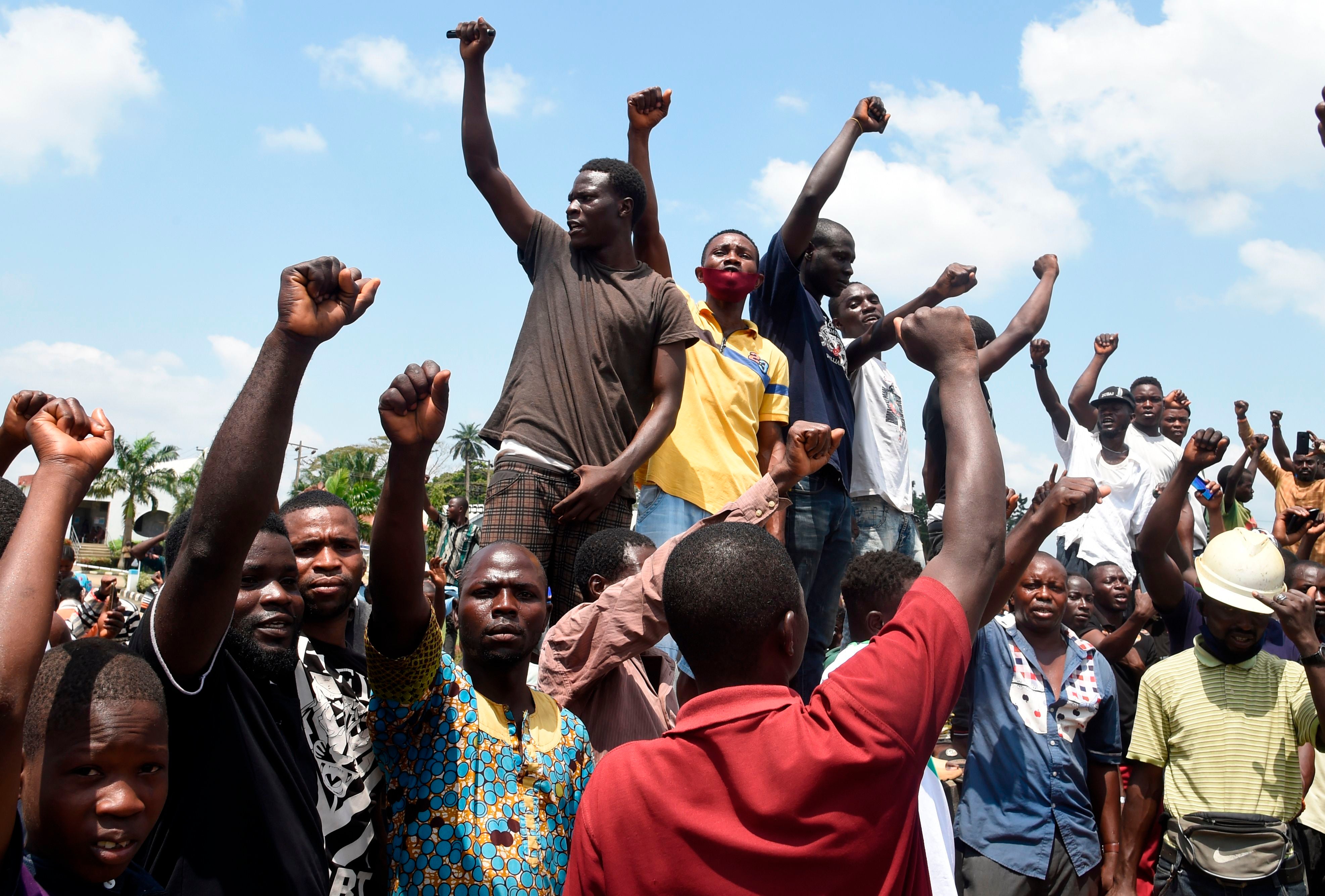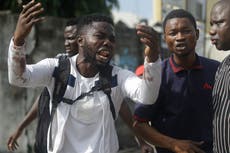End SARS: Nigerian military ‘ready to deploy’ troops to Lagos amid ongoing unrest after shooting of protesters
Warning comes after human rights groups said 12 peaceful demonstrators were killed by security forces this week

Your support helps us to tell the story
From reproductive rights to climate change to Big Tech, The Independent is on the ground when the story is developing. Whether it's investigating the financials of Elon Musk's pro-Trump PAC or producing our latest documentary, 'The A Word', which shines a light on the American women fighting for reproductive rights, we know how important it is to parse out the facts from the messaging.
At such a critical moment in US history, we need reporters on the ground. Your donation allows us to keep sending journalists to speak to both sides of the story.
The Independent is trusted by Americans across the entire political spectrum. And unlike many other quality news outlets, we choose not to lock Americans out of our reporting and analysis with paywalls. We believe quality journalism should be available to everyone, paid for by those who can afford it.
Your support makes all the difference.The Nigerian military has offered to deploy troops to Lagos state amid ongoing anti-police protests following the deadly shooting of peaceful demonstrators.
Unrest has spread across the state, which is under 24-hour curfew, after security forces gunned down civilians on Tuesday night following two weeks of rallies demanding an end to police brutality.
There were reports of gunshots and burning fires in the affluent Ikoyi neighbourhood of Lagos city, Nigeria, on Thursday afternoon as the West African nation's biggest wave of unrest since the end of military rule in 1999 continued.
In an earlier interview on local station Arise TV, state governor Babjide Sanwo-Olu said the chief of defence staff and the chief of army staff had called around midday on Wednesday "to say that if indeed I require for the military to come out, they will deploy them”.
He said the primary concern was the security of key business and government sites, such as ports in Lagos, Nigeria’s largest city and commercial hub.
"It's really just a conversation around security support that we've got," Mr Sanwo-Olu said.
The governor did not say whether he would accept the offer but called on leaders to keep young people including protesters off the streets.
The death toll and precise circumstances of Tuesday night’s shooting remained unclear, with authorities initially claiming only one person died but witnesses and human rights groups reporting at least 12 were killed.
Amnesty International said evidence from witnesses, video footage and hospital reports confirmed at least a dozen peaceful demonstrators were killed by the Nigerian army and police in two locations in Lagos.
The United Nations secretary-general Antonio Guterres also referred to “multiple deaths” in statement condemning the violence.
Ten of the victims were reported to have been killed when soldiers opened fire on End Sars protesters at Lekki toll gate at 6.45pm local time. An hour later two more demonstrators were killed and a third critically injured when soldiers and police shot at protesters at another site in the district of Alausa, witnesses told Amnesty International.
The army has denied soldiers were at the site of the shooting at Lekki toll gate in Lagos, where people had gathered in defiance of the curfew.
Mr Sanwo-Olu said he did not send forces to the toll gate.
Nigerian president Muhammadu Buhari said CCTV cameras on Lekki bridge, which social media posts suggested had been removed prior to the shootings, were working at the time and would form part of the state's investigation into the deaths.
He added he would "absolutely" make the footage public.
Several other Nigerian states are also under curfew and the oil-producing Delta state announced it would enter a 48-hour curfew from 6pm on Thursday.
Unrest escalated on Wednesday in the wake of the shootings, with groups of young men and armed police clashing in several areas of Lagos.
The End Sars protest movement emerged in early October calling for the disbandment of the Special Anti-Robbery Squad (Sars) – a police unit that rights groups have long accused of extortion, harassment, torture and murder – after video footage showed a man being beaten by an officer.
The unit was disbanded on 11 October, but rallies have persisted with demands for wider reform of law enforcement.
Nigeria has faced international criticism, including from UK foreign secretary Dominic Raab, for its crackdown on the protests.
The US State Department said on Thursday it “strongly condemns the use of excessive force by military forces" who fired on unarmed demonstrators and called for those responsible to be prosecuted.

Join our commenting forum
Join thought-provoking conversations, follow other Independent readers and see their replies
Comments